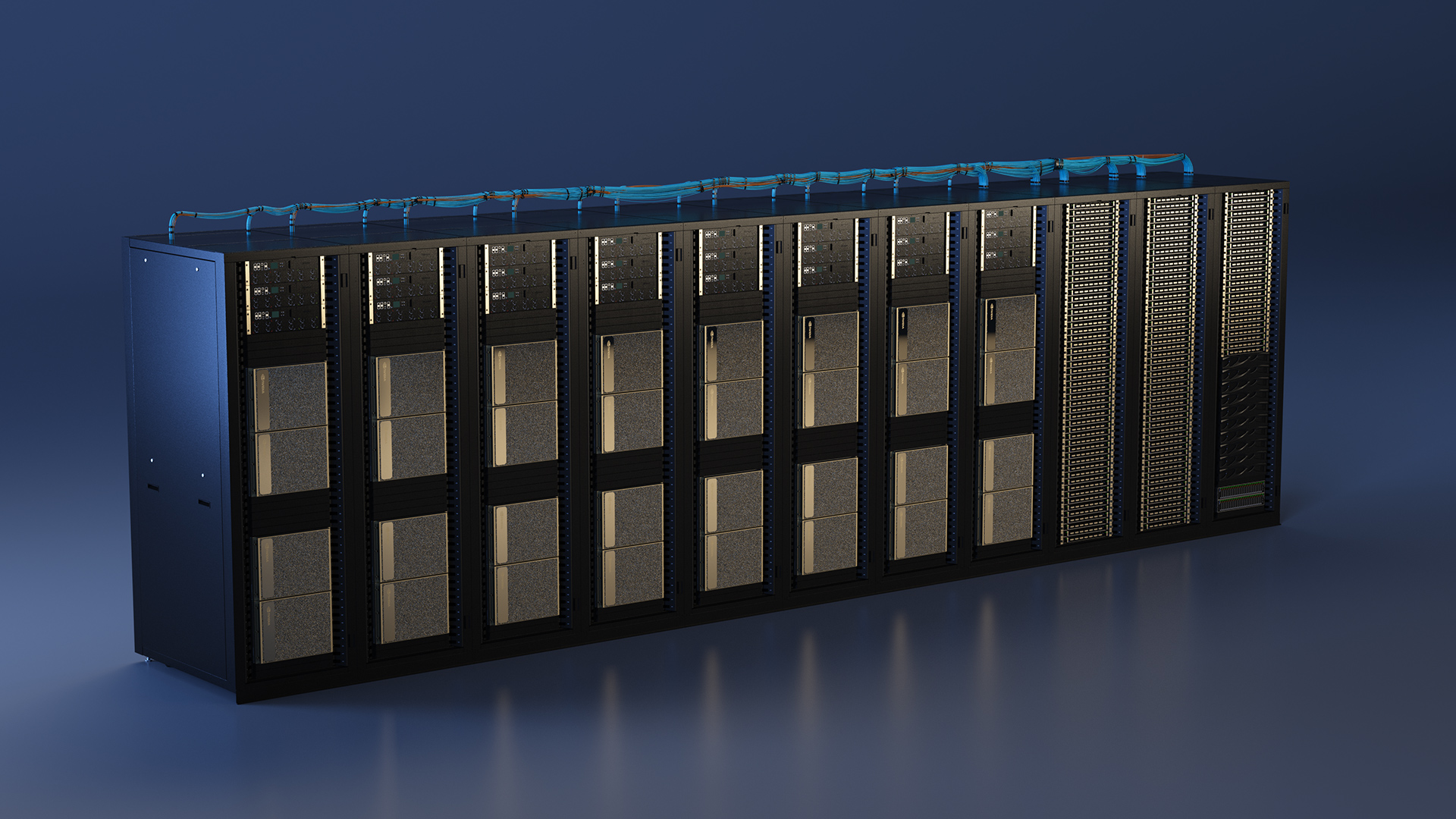
Mitsui & Co., Ltd., certainly one of Japan’s largest enterprise conglomerates, is collaborating with NVIDIA on Tokyo-1 — an initiative to supercharge the nation’s pharmaceutical leaders with expertise, together with high-resolution molecular dynamics simulations and generative AI fashions for drug discovery.
Introduced right now on the NVIDIA GTC world AI convention, the Tokyo-1 venture options an NVIDIA DGX AI supercomputer that might be accessible to Japan’s pharma firms and startups. The hassle is poised to speed up Japan’s $100 billion pharma business, the world’s third largest following the U.S. and China.
“Japanese pharma firms are specialists in moist lab analysis, however they haven’t but taken benefit of excessive efficiency computing and AI on a big scale,” stated Yuhi Abe, normal supervisor of the digital healthcare enterprise division at Mitsui. “With Tokyo-1, we’re creating an innovation hub that may allow the pharma business to remodel the panorama with state-of-the-art instruments for AI-accelerated drug discovery.”
The venture will present prospects with entry to NVIDIA DGX H100 nodes supporting molecular dynamics simulations, giant language mannequin coaching, quantum chemistry, generative AI fashions that create novel molecular constructions for potential medication, and extra. Tokyo-1 customers may harness giant language fashions for chemistry, protein, DNA and RNA knowledge codecs via the NVIDIA BioNeMo drug discovery software program and repair.
Xeureka, a Mitsui subsidiary centered on AI-powered drug discovery, might be working Tokyo-1, which is predicted to go surfing later this yr. The initiative may even embody workshops and technical coaching on accelerated computing and AI for drug discovery.
Invigorating Drug Discovery Analysis With AI, HPC
In accordance with Abe, Japan’s pharmaceutical surroundings has lengthy confronted drug lag: delays in each drug improvement and the approval of remedies which are already out there elsewhere. The issue acquired renewed consideration throughout the race to develop vaccines throughout the COVID-19 pandemic.
The nation’s pharmaceutical firms see AI adoption as a part of the answer — a key instrument to strengthen and speed up the business’s drug improvement pipeline. Coaching and fine-tuning AI fashions for drug discovery require monumental compute assets, such because the Tokyo-1 supercomputer, which in its first iteration will embody 16 NVIDIA DGX H100 methods, every with eight NVIDIA H100 Tensor Core GPUs.
The DGX H100 is predicated on the highly effective NVIDIA Hopper GPU structure, which encompasses a Transformer Engine designed to speed up the coaching of transformer fashions, together with generative AI fashions for biology and chemistry. Xeureka plans so as to add extra nodes to the system because the venture grows.
“Tokyo-1 is designed to handle among the limitations to implementing data-driven, AI-accelerated drug discovery in Japan,” stated Hiroki Makiguchi, product engineering supervisor within the science and expertise division at Xeureka. “This initiative will uplevel the Japanese pharmaceutical business with excessive efficiency computing and unlock the potential of generative AI to find new therapies.”
Prospects will be capable of entry a devoted server on the supercomputer, obtain technical assist from Xeureka and NVIDIA, and take part in workshops from the 2 firms. For bigger coaching runs that require extra computational assets, prospects can request entry to a server with extra nodes. Customers may buy Xeureka’s software program options for molecular dynamics, docking, quantum chemistry and free-energy perturbation calculations.
Through the use of NVIDIA BioNeMo software program on the Tokyo-1 supercomputer, researchers will be capable of scale state-of-the-art AI fashions to hundreds of thousands and billions of parameters for purposes together with protein construction prediction, small molecule era and pose prediction estimation.
Tokyo-1 Accelerates Japanese Firms in Pharma and Past
Main Japanese pharma firms together with Astellas Pharma, Daiichi-Sankyo and Ono Pharmaceutical are already planning to advance their drug discovery tasks with Tokyo-1.
Tokyo-based Astellas Pharma is pursuing revolutionary digital options throughout its enterprise — together with in gross sales, manufacturing, and analysis and improvement — to maximise outcomes for sufferers and cut back the prices of healthcare. With Tokyo-1, the corporate will speed up its analysis with molecular simulations and huge language fashions for generative AI via NVIDIA BioNeMo software program.
“AI and large-scale simulations can be utilized for purposes together with small molecule compounds, antibodies, gene remedy, cell remedy, focused protein degradation, engineered phage remedy and mRNA medication,” stated Kazuhisa Tsunoyama, head of digital analysis options, superior informatics and analytics at Astellas. “By enabling us to take full benefit of current advances in AI and simulation expertise, Tokyo-1 might be one of many foundations on which Astellas can obtain its VISION for the way forward for pharmaceutical analysis.”
Tokyo-based Daiichi Sankyo will use Tokyo-1 to determine a drug discovery course of that absolutely integrates AI and machine studying.
“By adopting AI and the cutting-edge GPU assets of Tokyo-1, we can carry out large-scale computations to speed up our drug discovery efforts,” stated Takayuki Serizawa, senior researcher at Daiichi Sankyo. “These developments will present new worth to sufferers by enhancing drug supply and probably enabling personalised medication.”
Ono Pharmaceutical, based mostly in Osaka, focuses on drug discovery within the fields of oncology, immunology and neurology.
“Coaching AI fashions requires important computational energy, and we imagine that the large GPU assets of Tokyo-1 will resolve this drawback,” stated Hiromu Egashira, director of the Drug Discovery DX Workplace within the drug discovery expertise division at Ono. “We envision our use of the DGX supercomputer to be very broad, together with high-quality simulations, picture evaluation, video evaluation and language fashions.”
Past the pharmaceutical business, Mitsui plans to make the Tokyo-1 supercomputer accessible to Japanese medical-device firms and startups — and to attach Tokyo-1 prospects to AI options developed by world healthcare startups within the NVIDIA Inception program. NVIDIA may even join Tokyo-1 customers with the a whole lot of world life science prospects in its developer community.
Uncover the newest in AI and healthcare at GTC, operating on-line via Thursday, March 23. Registration is free.
Watch the GTC keynote deal with by NVIDIA founder and CEO Jensen Huang beneath:
